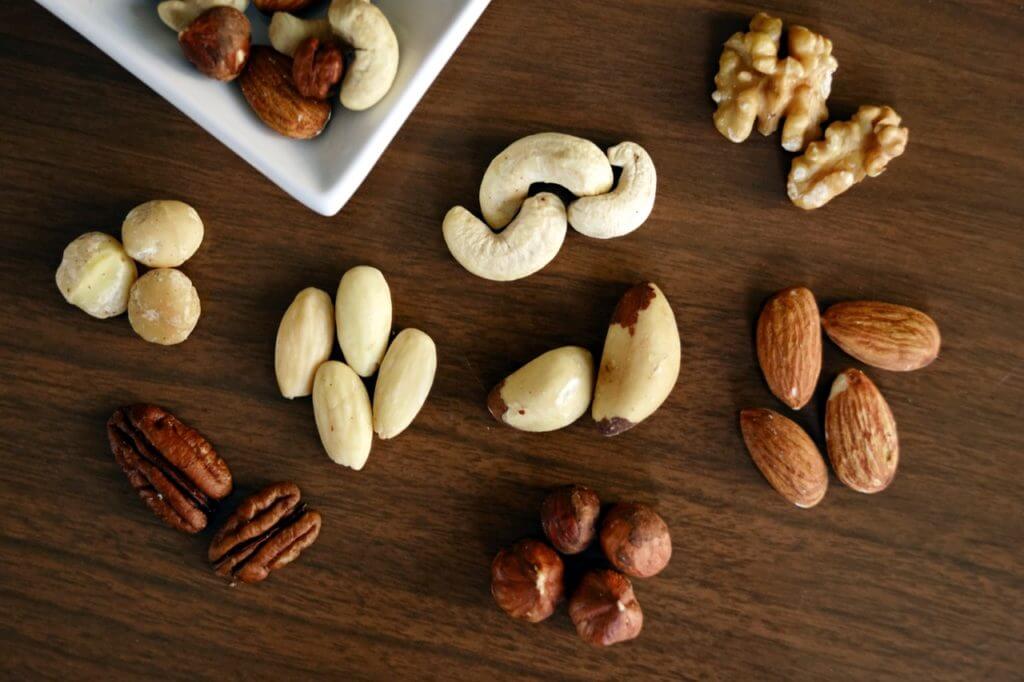Nuts are very high in fat, which is why they can cause diarrhea if you eat an exceptionally large amount.
While it’s not a crazy idea to think that this could help with constipation, it would likely just make the problem worse in most cases.
Nuts do usually have a mild benefit for constipation, but for a different reason than being high in fat. We’ll look at when they may or may not help.
Table of Contents
What Causes Constipation Problems?
Constipation can be caused by all sorts of things. Diet mainly contributes in just 2 ways:
- Dehydration
- Fiber (too much or too little)
- Blockages
- Diseases (e.g. colon cancer)
- Nerve damage
- Other health conditions (e.g. diabetes, pregnancy)
- Certain medications
Many of those are serious conditions, so chronic constipation should be checked by a doctor.
Human feces is mainly made of fiber, undigested nutrients (e.g. fats, proteins), and dead bacteria. Even though most people don’t get enough fiber in their diets, suddenly getting too much fiber can disrupt this balance and affect bowel movements negatively.
Most short term cases of constipation are caused by dehydration or a significant change in fiber intake.
Are Nuts Good or Bad for Constipation?

Many people aren’t aware that most nuts are high in fiber.
You can see this nut nutrition comparison for data on more nuts, but let’s take a quick look at the fiber and water content of almonds (highest nut in fiber) and cashews (lowest in fiber).
This data is per 100 gram serving:
| Almonds | Cashews | |
|---|---|---|
| Fiber | 12.5 g | 3.3 g |
| Water | 4.4 g | 5.2 g |
Most nuts are high in fiber, and have negligible water content.
Even though that’s a large gap in fiber in this case, most nuts are closer to almonds when it comes to fiber.
For reference, most adults should aim to get 25-38 grams of fiber per day (men need the upper range). So a 100 gram serving of most nuts has a lot of fiber.
If someone suddenly eats a lot of nuts, especially almonds, they are likely consuming a lot more fiber than they are used to, which can cause constipation and other stomach issues.
Research on Nuts and Constipation
There’s not too much research on nuts and constipation unfortunately.
Some nutrition textbooks do indicate that nuts are good for regular bowel movements due to their fiber content. And if eaten consistently, that’s likely true.
But we’re more interested in suddenly introducing nuts to a diet, or changing the amount consumed.
There has been one study done on patients with end-stage kidney disease. Those patients often have constipation due to their restricted prescribed diets, and they were instructed to eat 40 grams of raw almonds every day for 4 weeks.
Constipation symptoms started improving at the week 2 point:
Statistically significant improvements in constipation were seen at weeks 2, 3, 4, and 10.
There were also improvements in quality of life, vomiting, itching, and skin changes.
As long as nuts are eaten consistently, they can help relieve constipation for people who have diets that are low in fiber to begin with.
Can a Nut Allergy or Expired Nuts Cause Constipation?
Allergies and food poisoning can cause constipation in rare cases, but other symptoms are much more common.
Allergies typically present themselves in the form of itching, nausea, rashes, hives, and vomiting.
Similarly, eating nuts that have gone bad typically cause an upset stomach, nausea, vomiting, or diarrhea.
In the vast majority of cases, those symptoms would be more obvious than constipation.
